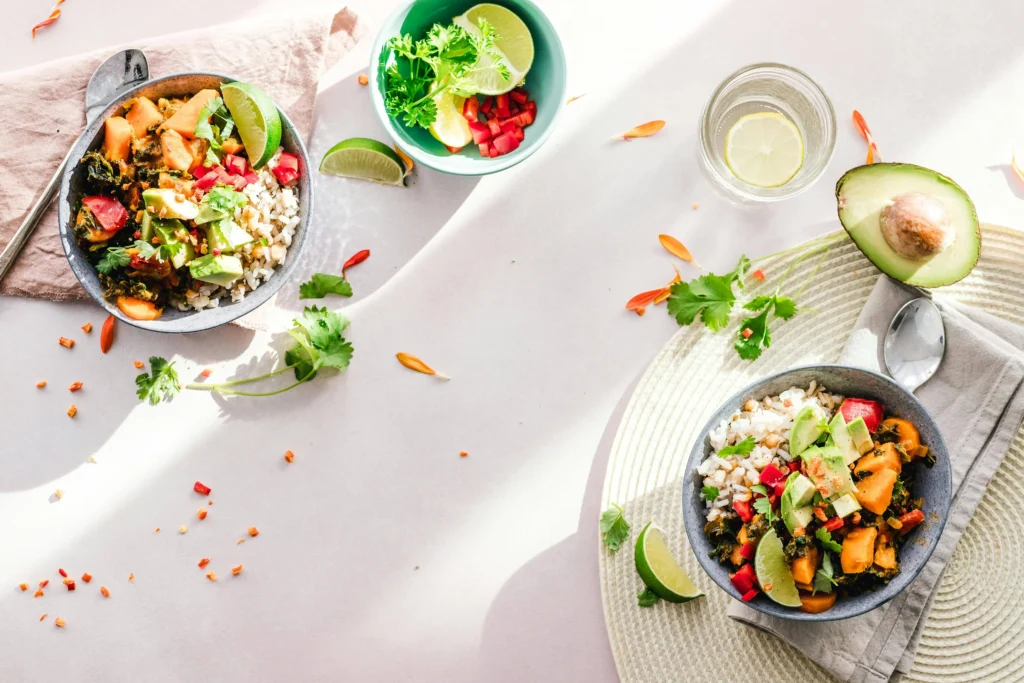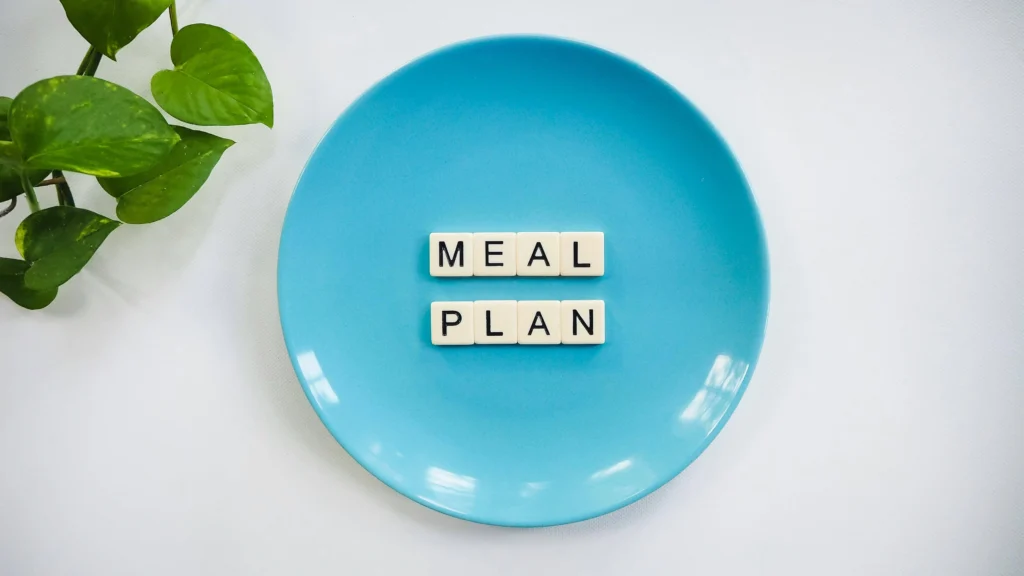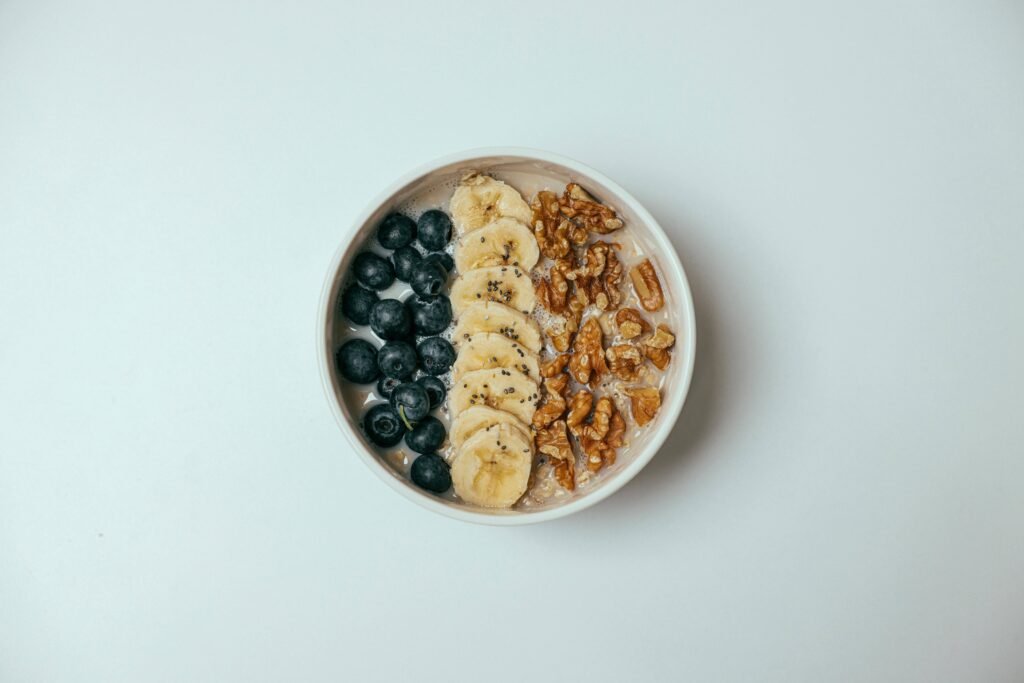
Attention all those seeking relief from the challenges of ulcerative colitis! Introducing our comprehensive 7 Day Meal Plan for Ulcerative Colitis—a thoroughly crafted guide to ease your digestive distress and promote digestive health.
Say goodbye to “I don’t know what to have for dinner” and hello to 7 days of healthy, delicious meals designed to reduce symptoms and promote healing. Each day presents a diverse array of nutrient-dense options, ensuring you feel energized and satisfied while addressing the unique needs of your condition. Take charge of your well-being starting today with our easy-to-follow meal plan.
Table of Contents
What Is Ulcerative Colitis
Ulcerative colitus is a long-term inflammatory bowel disease. It’s a form of IBD that causes long-term inflammation and ulcers. It primarily affects the colon and rectum, leading to symptoms such as abdominal pain, diarrhea, rectal bleeding, fatigue, and weight loss. While the exact cause is unknown, it is thought to be caused by a combination of genetics, environment, and the immune system.
Importance of Diet in Managing Ulcerative Colitis
Diet plays a crucial role in managing ulcerative colitis symptoms. While some foods can increase inflammation and worsen symptoms, others can reduce inflammation and aid in digestive tract healing. A well-balanced diet that focuses on high-quality, easy-to-digest foods can help colitis sufferers manage symptoms and improve their quality of life.
Principles of a Meal Plan for Ulcerative Colitis
One of the most important things to keep in mind when planning a meal plan for someone with colitis is to prioritize foods that are easy on the digestive tract and less likely to cause inflammation. Here are some general guidelines to keep in mind:
- Avoid spicy foods
- High-fiber foods
- Dairy products
- Caffeine
- Lean proteins
- Cooked vegetables
- Fruits
- Whole grains
Building a 7-Day Meal Plan

Day 1
- Breakfast: Scrambled eggs with spinach and toast
- Lunch: Grilled chicken salad with mixed greens and avocado
- Dinner: Baked salmon with quinoa and steamed carrots
Day 2
- Breakfast: Oatmeal with banana and almond butter
- Lunch: Turkey and avocado wrap with a side of fruit
- Dinner: Stir-fried tofu with bell peppers and brown rice
Day 3
- Breakfast: Greek yogurt with honey and blueberries
- Lunch: Lentil soup with a side of steamed broccoli
- Dinner: Roast chicken with sweet potato mash and green beans
Day 4
- Breakfast: Smoothie made with spinach, pineapple, and coconut water
- Lunch: Quinoa salad with cucumber, tomato, and feta cheese
- Dinner: Grilled shrimp skewers with roasted asparagus and couscous
Day 5
- Breakfast: Whole grain toast with almond butter and sliced strawberries
- Lunch: Vegetable stir-fry with tofu and brown rice
- Dinner: Baked cod with mashed potatoes and sautéed spinach
Day 6
- Breakfast: Overnight oats with chia seeds, raspberries, and almond milk
- Lunch: Chicken and vegetable curry with basmati rice
- Dinner: Turkey meatballs with zucchini noodles and marinara sauce
Day 7
- Breakfast: Scrambled eggs with smoked salmon and whole grain toast
- Lunch: Quinoa and black bean salad with avocado and lime dressing
- Dinner: Baked trout with quinoa pilaf and roasted Brussels sprouts
Sample Recipes
Breakfast Ideas
- Scrambled Eggs with Spinach and Toast:
Cook scrambled eggs with fresh spinach and serve with whole grain toast.
- Oatmeal with Banana and Almond Butter:
Prepare oatmeal with sliced banana and a dollop of almond butter for added flavor and protein.

Lunch Options
- Grilled Chicken Salad: Grill chicken breast and serve over mixed greens with sliced avocado and your choice of dressing.
- Lentil Soup: Cook lentils with vegetables and spices for a hearty and nutritious soup option.

Dinner Recipes
- Baked Salmon with Quinoa: Season salmon fillets with herbs and bake until tender. Serve with cooked quinoa and steamed carrots.
- Stir-Fried Tofu with Bell Peppers: Stir-fry tofu with bell peppers and your favorite sauce, and serve over brown rice.

Foods to Include In a 7 Day Meal Plan for Ulcerative Colitis
When crafting a 7-day meal plan for ulcerative colitis, it’s essential to focus on integrating foods that are gentle on the digestive system while providing ample nutrients to support overall health. Here’s a breakdown of foods to include:
1. Lean Proteins: Choose skinless sources such as chicken, fish, eggs and tofu to get your amino acids without putting too much strain on your digestive system.
2. Low-Fiber Fruits: Choose ripe bananas, peeled apples, and canned fruits in natural juices to enjoy the benefits of vitamins and minerals without aggravating symptoms.
3. Cooked Vegetables: Steam or boil vegetables like carrots, zucchini, and spinach to make them easier to digest while retaining their nutritional value.
4. White Rice and Pasta: These types of carbs are easy on your stomach and can give you energy without making you sick.
5. Low-Fat Dairy: To make sure you’re getting enough calcium without causing digestive problems, include dairy products that do not contain lactose like yogurt or hard cheeses.
6. Healthy Fats: Consume olive oil, avocados, and nuts in small amounts to help reduce inflammation and satisfy hunger
7. Well-Cooked Grains: Choose refined grains like white bread, white rice, and plain cereals to minimize fiber content and aid in digestion.
By integrating these foods into your 7-day meal plan, you can help manage symptoms of ulcerative colitis while nourishing your body with essential nutrients.
Foods to Avoid In a 7-Day Meal Plan for Ulcerative Colitis
When designing a 7-day ulcer colitis meal plan, it is just as important to recognize and avoid foods that can worsen symptoms and cause flare-ups. Here’s a list of foods to steer clear of:
1. High-Fiber Foods: Limit or avoid whole grains, seeds, nuts, and raw fruits and vegetables, as they can be difficult to digest and may aggravate inflammation.
2. Spicy Foods: Skip spicy seasonings, hot sauces, and peppers, as they can irritate the digestive tract and lead to discomfort.
3. Dairy Products: Eliminate or avoid high-fat dairy products like milk, soft cheese and ice cream. High-fat dairy products can cause gas, gas, and diarrhea.
4. Fatty and Fried Foods: Cut back on greasy foods like fried foods, fatty cuts of meat, and rich sauces, as they can worsen symptoms and slow digestion.
5. High-FODMAP Foods: Avoid foods high in fermentable carbohydrates, such as onions, garlic, beans, and certain fruits, as they may increase gas and bloating.
6. Alcohol and Caffeine: Drink less alcohol and avoid caffeinated drinks such as coffee and tea as these can irritate your digestive system and lead to dehydration.
7. Artificial Sweeteners: Steer clear of sugar alcohols and artificial sweeteners like sorbitol, mannitol, and sucralose, as they may cause digestive discomfort and worsen symptoms.
Avoiding these trigger foods, as well as carefully planning your meals, can help you manage your symptoms and improve your overall health.
Tips for Following the Meal Plan
Adapting a meal plan for ulcerative colitis requires careful consideration to ensure it meets individual needs and preferences while supporting digestive health. Here are some tips to help you customize your meal plan:
1. Listen to Your Body: Pay attention to how different foods affect your symptoms and adjust your meal plan accordingly. Keep a food diary to track triggers and identify patterns.
2. Experiment with Cooking Methods: Use mild cooking methods like smoking, boiling, or baking to make food easier to digest and retain its nutrients.
3. Focus on Variety: Incorporate a wide range of foods to ensure you’re getting a diverse array of nutrients. Rotate foods to prevent food boredom and ensure balanced nutrition.
4. Stay Hydrated: Drink plenty of fluids throughout the day to prevent dehydration, which can worsen symptoms. Opt for water, herbal teas, and electrolyte-rich beverages.
5. Consider Small, Frequent Meals: Eating smaller, more frequent meals throughout the day can help manage symptoms like bloating and discomfort. Aim for balanced meals and snacks.
6. Be Mindful of Portions: Pay attention to portion sizes to prevent overeating, which can put additional strain on the digestive system. Eat slowly and savor each bite.
7. Consult with a Healthcare Professional: Work closely with your healthcare provider or a registered dietitian to tailor your meal plan to your specific needs and dietary restrictions. They can provide personalized guidance and support.
By implementing these tips and staying attuned to your body’s signals, you can adapt your meal plan to better manage ulcerative colitis and support your overall health and well-being.
Conclusion
A well-planned meal plan is a valuable tool for managing ulcerative colitis symptoms and promoting overall gut health. By focusing on nourishing, easy-to-digest foods and avoiding common triggers, People with ulcerative colitis can lead healthier lives by focusing on their health and well-being.
FAQs
- Can I still enjoy my favorite foods while following this meal plan?
- While there are some foods that you may need to limit or avoid, there are also plenty of tasty and healthy options to choose from. Experiment with different recipes and ingredients to find alternatives that work for you.
- How can I prevent flare-ups while following this meal plan?
- In addition to following the meal plan, it’s essential to manage stress, get regular exercise, stay hydrated, and get enough sleep. These lifestyle factors can all contribute to reducing the frequency and severity of flare-ups.
- Is it okay to cheat occasionally and indulge in trigger foods?
- While some people don’t mind indulging every now and then, it’s important to follow your gut and pay attention to how certain foods interact with your symptoms. If you do choose to indulge, do so in moderation and be prepared for potential consequences.
- Can supplements be integrating into this meal plan to help manage ulcerative colitis?
- Certain supplements, such as probiotics, omega-3 fatty acids, and vitamin D, may offer additional benefits for individuals with ulcerative colitis. However, it’s essential to consult with a healthcare provider before adding any new supplements to your regimen.
- How long should I follow this meal plan?
- The duration of the meal plan can vary depending on individual needs and preferences. Some people like to stick with the plan for a long period of time, while others like to use the plan as a compass and make changes as needed.



